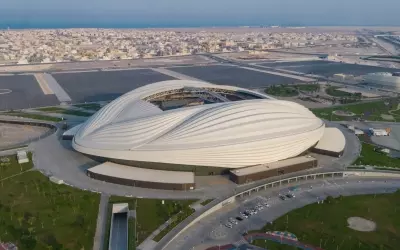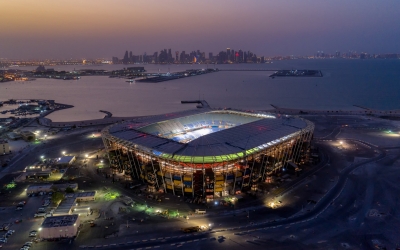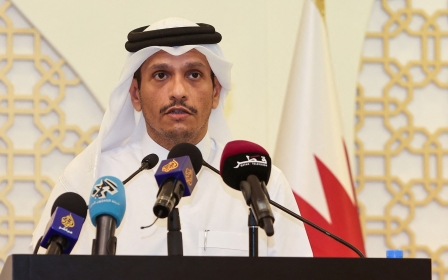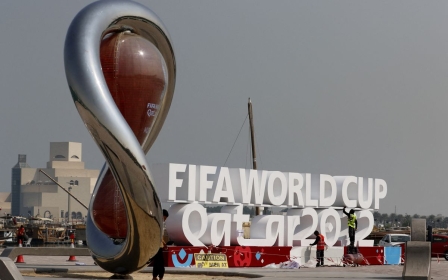Qatar World Cup 2022: How brands are navigating the controversial tournament
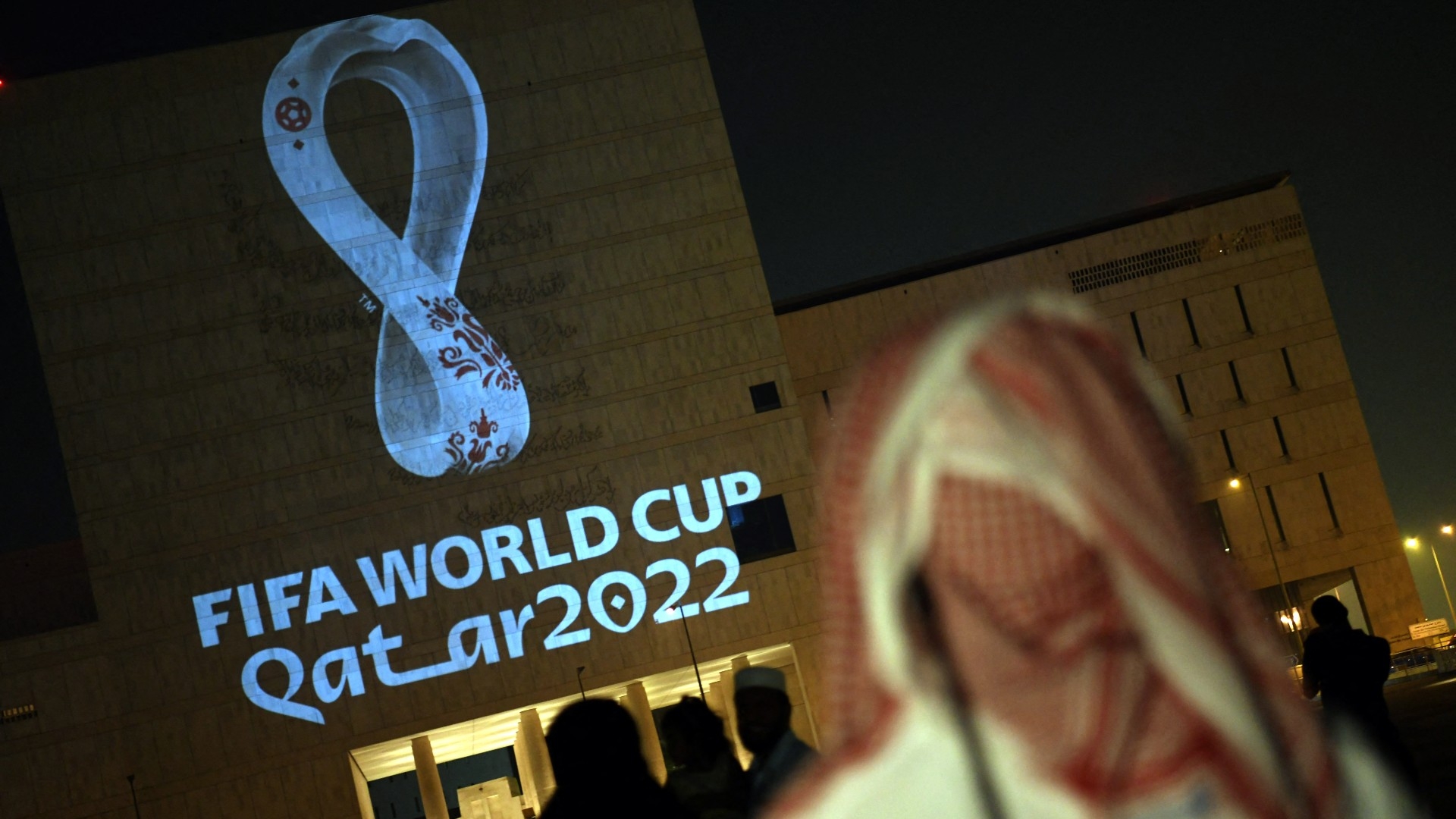
Controversy often swirls around big sporting events, but the decision to award the 2022 World Cup to Qatar is one that has dogged Fifa ever since 2010.
Pulling off one of the most compelling and controversial coups in football history, the gas-rich nation beat stiff competition from the United States in a 14-8 vote to host the showpiece tournament.
Now, 12 years after former Fifa president Sepp Blatter surprised everyone - including himself - by drawing Qatar's name from an envelope, the most controversial World Cup of them all looms on the horizon.
Qatar has promised to put on a show and has invested more than $200bn in building seven new stadiums, a new metro system, roads, a new airport and other major development projects.
'If you're a major brand, and you say: "we stand for racial equality", but your board is entirely made up of white males, people are going to call you out on that'
- Amar Singh, MKTG Sports + Entertainment
But questions still remain as to how a country that has failed to qualify for previous tournaments can host the world's most high-profile sporting event.
New MEE newsletter: Jerusalem Dispatch
Sign up to get the latest insights and analysis on Israel-Palestine, alongside Turkey Unpacked and other MEE newsletters
Qatar has long denied allegations of acting improperly but more than half the people involved in the votes for the 2022 World Cup, including Blatter, have been accused of wrongdoing.
With the spotlight also firmly placed on the country's treatment of migrant workers, multiple companies and even some football federations are taking steps to distance their brands from the event.
Hummel, which makes the Danish team's kit, has toned down its branding and released a black kit in protest against Qatar's human rights record.
Amar Singh, the senior vice-president, head of content and communications at the marketing agency MKTG Sports + Entertainment, which has been advising several global brands and sponsors on their strategies for the tournament, believes "there's every chance that Qatar 2022 will be a powder keg for socially charged conversations and issues".
"I think we're going to see a lot more over the next few weeks," he told Middle East Eye. "Hummel is just the start. I think we're going to see more involvement and more statements."
'Cause-driven marketing'
According to Singh, some of the changes can be attributed to the evolving relationship between fans and brands.
"The fans, the TV viewers that the World Cup reaches all over the globe, are now much more expectant of a positive message and action, and cause-driven, purpose-driven marketing," he said.
MKTG's Decoding survey carried out this year found that globally 86 percent of fans say they are interested in cause-related marketing - up from 42 percent in 2020.
Singh said the shift has been driven by profound changes the world has undergone over the last few years.
"Issues such as climate activism have gained momentum, as the Covid pandemic brought into focus how vulnerable humanity is to global threats. The murder of George Floyd sparked a lot of racial justice protests and led to a series of athletes, including footballers, taking the knee before games."
"And digital habits have continued to evolve. People are much more digitally engaged and contributing more digitally. The noise on social media is louder. So fans want sponsors, such as Fifa's global partners, to be showing how they're making the world a better place."
The changes also mark the broader challenges facing players, teams and sponsors as they seek to navigate issues such as human rights that have overshadowed the tournament.
In July, Human Rights Watch, Amnesty International and FairSquare wrote to Fifa's 14 corporate partners and World Cup sponsors urging them to "provide compensation and other remedies to migrant workers and their families who suffered death or injury, wage theft or debt from illegal recruitment fees."
The move came after an open letter was sent to Fifa president Gianni Infantino demanding at least $440m - the same amount provided to teams participating in the tournament - in order to fund such a compensation scheme.
At the same time, to support the calls for action, Human Rights Watch launched the #PayUpFIFA campaign. In a statement published in September, the rights group said that four major sponsors - AB InBev/Budweiser, Adidas, Coca-Cola and McDonald’s - had expressed support for the proposed compensation.
However, 10 other sponsors - Visa, Hyundai-Kia, Wanda Group, Qatar Energy, Qatar Airways, Vivo, Hisense, Mengniu, Crypto and Byju's - had offered no public support and had not responded to written requests to discuss tournament-related abuses.
The call for a compensation fund has also been backed by the national Football Associations of several countries competing at the tournament, including Germany, the Netherlands and the United States, along with prominent broadcasters and former England players Gary Lineker and Alan Shearer.
The results of a global opinion poll commissioned by Amnesty International placed further pressure on brands when the findings were released in September.
In the poll, which was carried out by YouGov and surveyed 17,477 adults in 15 countries, 66 percent of those polled, and 72 percent of those likely to watch at least one World Cup match, said that Fifa's corporate partners and sponsors should publicly call on Fifa to compensate migrant workers who suffered while working on World Cup-related projects in Qatar.
'More forthright action'
Yasmine Ahmed, the UK director of Human Rights Watch, said rights groups were still unaware as to whether any of the 10 sponsors would join calls for compensation from Fifa.
"We've sent them letters, we've engaged with them to varying degrees, depending on how much they will engage with us," she told MEE.
"We're not clear whether any more will actually join."
As the tournament draws closer, Ahmed said HRW would like to see "more forthright action" not only from official partners, but also from other brands involved in the World Cup.
"There's a responsibility on these companies who are sponsoring the event and facilitating the event in different ways to be taking direct action to help mitigate human rights abuses, and to be raising these issues," she said.
"Many of them are going to be earning money from an event on the back of which serious human rights violations are occurring to some of the most disadvantaged, marginalised people on the planet - migrant workers who are poor, who are in the most vulnerable position."
Since 2017, Qatari authorities have introduced a number of labour reforms covering working conditions and a minimum wage, and have abolished the exploitative kafala system.
However, in a report published in 2021, HRW said that migrant workers were still suffering “punitive and illegal wage deductions, and… months of unpaid wages for long hours of gruelling work.”
And Amnesty International said companies were still putting pressure on labourers to stop them switching employers, arguing that this effectively means forced labour still exists in Qatar.
While much of the pressure to act in the build-up to the World Cup is being felt by western brands, it is notable that Chinese companies are providing more sponsorship revenue than companies from any other country at the tournament - $1.4bn from Chinese companies compared with $1.1bn from US companies, according to GlobalData.
Analysis from Investment Monitor found that even when looking at the annual value of these deals, China is the biggest sponsorship contributor.
The report notes that at the 2018 Russia World Cup - when other companies were turning away from the tournament - Chinese sponsorship rapidly increased, with six companies from China becoming sponsors that year.
Chinese companies
Four of this year's World Cup sponsors are from China - Wanda Group, Vivo, Hisense and Mengniu - none of these sponsors have backed calls for a compensation fund for migrant workers.
Rowan Simons, who has been working in the media and sports industries in China for more than 30 years and chairs China ClubFootball FC, said that this approach is consistent with China's policy towards internal matters elsewhere.
"The Chinese government is always about non-interference in other countries' affairs," he told MEE. "So they would say it's nothing to do with them at all. And consumers in China probably wouldn't be pushing back on that.
"In their eyes, the national pride of having sponsors [of the World Cup] probably outweighs the association with possible human rights abuses."
Ahmed added that the proportion of the sponsorship spend on the tournament coming from Chinese companies, and their lack of response to the calls to support the proposed compensation scheme, is a “really, really important point” to raise.
"We've been making the same calls to everyone, and it speaks volumes that certain companies have come out and others that are domiciled in certain countries haven't. And it raises serious concerns, because the whole issue here is that the World Cup allows Qatar to whitewash its abuses."
She added that no matter where they are based, "our advice for brands is to really take very, very seriously your human rights responsibilities. And that's to push Fifa, that's to push football associations, and that's to push the Qatar government to be doing the right thing. You have not only an opportunity, but a responsibility. And the first step now is to back that compensation scheme."
As the World Cup approaches, Singh advises brands involved in the tournament to make sure they are ready to act as major talking points come to the fore, whether they be related to the treatment of foreign workers or other issues.
"Be preactive, not reactive," he said. "Prepare to react, prepare to respond. Understand where you stand on LGBTQ+, and where do you stand on racial equality? What are you doing around the issues of migrant workers and their rights? How are you helping the world be a better place in that regard? How have you worked on the ground with Fifa?
"Also what is your message? But it's very important that your message is coupled with authentic action as well, because people don't just want the message now, they want to know what you're actually doing.
"If you're a major brand, and you say, 'we stand for racial equality, we stand with this player who made this statement about racial equality', but if your board is entirely made up of white males, for example, people are going to call you out on that."
Middle East Eye delivers independent and unrivalled coverage and analysis of the Middle East, North Africa and beyond. To learn more about republishing this content and the associated fees, please fill out this form. More about MEE can be found here.


